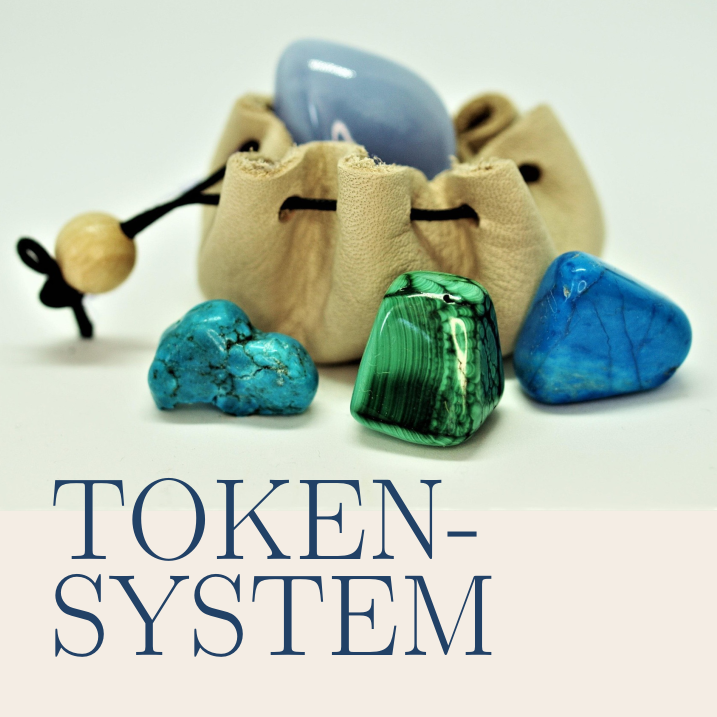Check our new E-Books for FREE! Click Here!
Social Media & Gaming | A Challenge
Social media and gaming are a difficult challenge for many families. We've compiled tips and tricks to help you overcome them.

Your child is sitting on the bed, phone in hand. Their eyes are fixed on the screen, their finger mechanically swiping up – video after video on TikTok. Laughter, music, rapid cuts. “I’ll turn it off soon!” they shout, without taking their gaze off the display. Or is it a different scenario? Perhaps your child loudly calls out from their room: “No, I have to keep playing, the others are waiting for me!” A moment that might leave you feeling angry or at a loss.
Many parents are familiar with such situations. And dealing with them is not easy. Smartphones, social media, and computer games are a fixed part of our children’s and adolescents’ lives. They offer entertainment, connect friends, and often even bring joy to the whole family. But they also pose dangers – and sometimes, as parents, you feel alone in the task of monitoring and understanding these.
But what exactly is happening? Why is it so hard to just turn off the screen? Why do platforms like TikTok or games like Fortnite captivate children so much? And how can you guide your child, without lecturing, without arguing, and without straining your relationship?
7 Common Mistakes with the Token-System – and how to avoid them
DownloadWhat Social Media Does to Your Child
Platforms like TikTok and Instagram are more than just colorful entertainment. They are designed to specifically engage our brain – and they do so particularly effectively with children and teenagers. Every “like”, every new follower, each funny animation triggers a little explosion of dopamine in the brain, the “happiness hormone”. The brain craves this feeling over and over again. It wants to keep scrolling, keep swiping, keep watching – and before you know it, hours have passed.
Additionally, social media often portrays a perfect world: beautiful people, thrilling experiences, success, and fun. But what happens when your child compares this life with their own? Many feel inadequate – not pretty enough, not successful enough, not interesting enough. Particularly for girls, this constant comparison can profoundly impact self-esteem. They see what they don’t have, rather than who they are.
Why Games are Often More Than Just a Game
Computer games are similarly structured. They promise excitement, success, and recognition – especially when friends are there. Multiplayer games promote social bonds, which can be good and important. But they can also create pressure: “I have to be online, otherwise I’ll lose touch.”
Games like Minecraft, Roblox or Fortnite use clever reward systems to motivate players to keep going. Every level up, every new achievement, every reward leads to a sense of progress and gratification. These mechanisms often resemble gambling and make it difficult to stop. The brain wants to experience this “kick” again and again – and the time spent in front of the screen keeps getting longer.
What You Should Know
The brains of children and adolescents are still developing. This means that the mechanisms of social media and games have a particularly strong impact:
- Addiction Risk: The release of dopamine in Social Media and games can cause children and teenagers to have difficulty controlling their use.
- Attention Problems: The constant stimuli train the brain to always seek the next “kick.” This could make it difficult to focus on long-term tasks or goals.
- Comparison and Self-Worth: Social media can lead to children comparing themselves with others and often perceiving themselves as “not enough”.
How You Can Talk to Your Child About This
Parents face the challenge of discussing these topics without sounding preachy. Openness and understanding are the key:
- Explaining Mechanisms: Explain to your child how social media and games are structured. For example: “The apps want you to stay as long as possible. They keep giving you small rewards to keep you going.”
- Asking questions: Instead of making accusations, ask: “How do you feel when you’ve been on TikTok for a long time?” or “Do you sometimes feel like you can’t stop?”
- Questioning comparisons: Talk to your child about the fact that a lot of content on Instagram and the like is staged: “Do you believe people always look like this or really live this way?”
Tips for You
- Create Media-free Times: Decide together with your child when smartphones and games should take a break – for example, during meals or before bedtime.
- Shared Usage: Watch videos together with your child or play games with them. This way, you can better understand the content and critically question it.
- Be a Role Model: Reduce your own screen time. Show your child that it can be exciting even without a mobile phone.
- Offer Positive Alternatives: Encourage activities such as sports, crafting, or quality family time.
Conscious Handling
Social Media and games are part of our world. They are not “evil”, but they require mindful usage – by children, teenagers, and parents. By understanding the mechanisms behind them and openly discussing them with your child, you can find a balance that strengthens your relationship without losing essential boundaries.
Token-System – Reward-System
A token system is a method of positive reinforcement designed to encourage desired behavior in children. The basic idea is simple: A child receives a *symbolic reward* – a token – for a specific behavior. This token can later be exchanged for an actual reward. The system has its roots in behavioral psychology and has been successfully used for decades in schools, therapy settings, and families.
Check it out for FREE!


